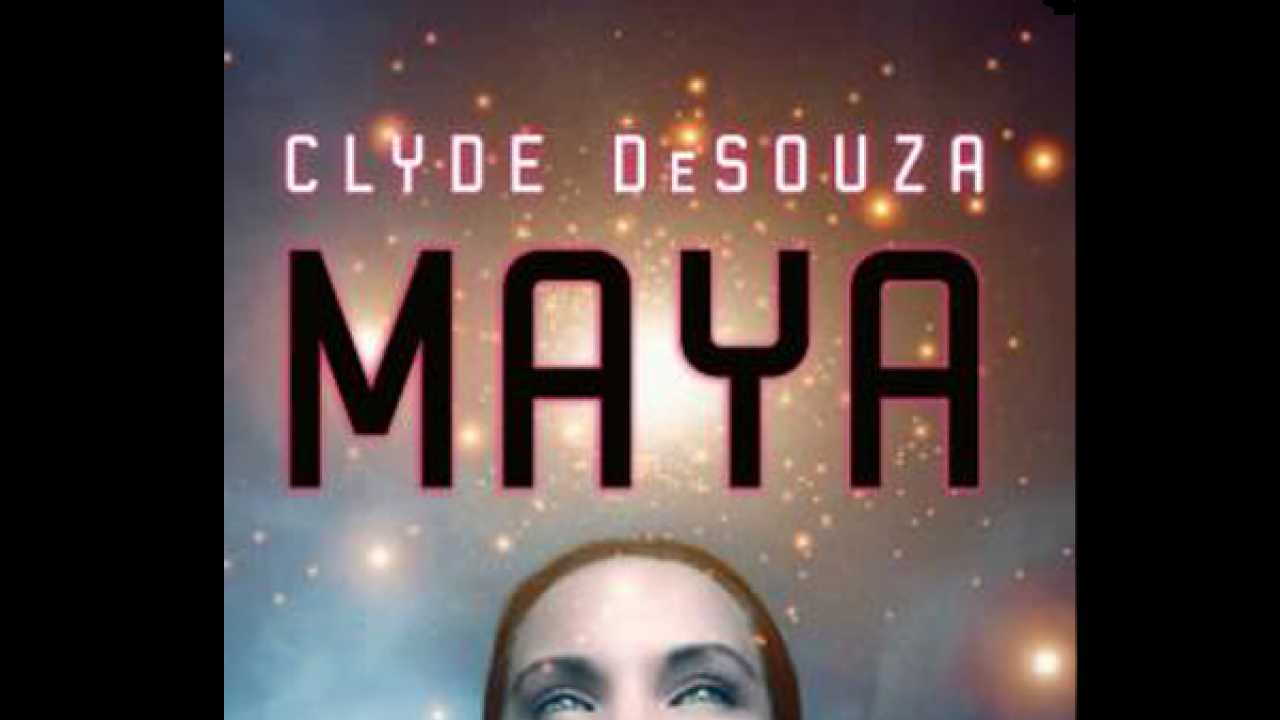
Clyde DeSouza calls himself a creative technology evangelist. This Dubai-based filmmaker and author, believes that holding on to tradition is over-rated, and a border-less, technology driven world is the future. His science fiction book Maya looks at the impact Augmented Intelligence will have on human personal relationships and the post-human future.
The story
Dan, the protagonist, is into ethical hacking and Augmented Reality. His friend Krish is a researcher in AI and is working on algorithms to make AGI (Artificial General Intelligence) possible. Dan is in a relationship with Maya, who is Krish’s sister. Krish and Maya have to return to India due to their father’s serious illness and rising medical expenses. Dan and Maya continue their relationship long distance. Then Krish gets a job at AIRI (Artificial Intelligence Research Incubator) in Mumbai, and convinces Dan to visit to work on a project on an advanced Augmented Reality visor driven by AI libraries. At a test in a nightclub, things go wrong and Maya is killed. Dan cannot accept losing her, and therein begins his journey to change his destiny and his transformation into a transhuman.
What is transhumanism
Simply put, transhumans believe that humans can and use technology to become more than human. Transhumanists support the possibilities of improving of human beings through technologies such as gene therapy, nano-technology, biotechnology, information technology and cognitive science. In addition, future technologies like simulated reality, artificial intelligence, stem cells, mind uploading, chemical brain preservation, nanotechnology and cryonics bring about the possibility of a future controlled by AI - a future that has the potential to help humans overcome “limitations” like ageing, disease, limited memory power etc. More on transhumanism here
Maya questions the ethics and emotions of human relationships in the midst of a technology-driven life. In conversation with the author.
Why a book on transhumanism?
The novel is more hard science fiction than philosophy, but is closely aligned to the ethos of transhumanism, that of the betterment of humankind through technology. The story is about human emotions primarily and about hacking one’s destiny.
There aren't too many books on transhumanity out in India. Why? Will this change?
Let’s start with there aren’t too many books that advance scientific thought in India, much less such a niche (and perhaps controversial) subject such as transhumanism. I’m distancing myself from what I call politically motivated Transhumanism and leaning more toward the overall use of technology to better humanity. Transhumanism sadly, has started to fragment with what I call carcinogens of human behaviour spoiling its main intent. I wouldn’t want a world with Transhumanist overlords who “own” technology to control the world. The movie Elysium comes to mind.
I’m hoping that young India start demanding more from their fiction than some of the current fluff that is being published and consumed. While there is nothing inherently wrong with young men and women reading romance, I’m hoping a new flavour of fiction finds acceptance on bookshelves of readers in India. When that happens, and I believe it will, there will be more writers who will weave believable technology into their stories.
There’s no reason why Indian mythology, a popular genre in Indian writing, can’t be re-interpreted based on hard science. Immortality for instance, talked about in ancient India is a topic that is close to every transhumanist’s heart. The topic finds space in 'Maya'.
How do you see technology affecting us, emotionally and otherwise, in the future?
I try to show how technology affects us by lots of foreshadowing in the story, sometimes by metaphor, sometimes through aphorisms. Many of my thoughts on how technology is already affecting us emotionally has made its way into the story in Maya. For instance, people are already in LDRs - Long distance relationships. Every evening across India, people cry, smile, even have sex with the help of technology. The important part is technology is aiding in the experience of emotions.
Once we look beyond the taboo, we realise how much our lives are being augmented by technology. We are slowly merging with the tech in our pockets - how long before we start wearing it, implanting it?
Not everyone will be bio-hacking themselves, but when you watch a video of a young 7-year-old with a 3D printed prosthetic hand grip a baseball or cricket ball for the first time… it’s an emotion that is beyond words, even more so for the child’s parents. In Maya, it goes one step beyond. The epilogue in the story contains a coded message. I’m hoping people get it!
What has been the response to the book?
The feedback from readers has also been very encouraging with many of them even voicing disappointment that the story should have been longer and asking for a sequel (I am working on that). There’s been good critique too, and I’ve made it a point to take notes while researching for the next book. Some readers thought the story was a take on the popular movie “HER” until they realised Memories with Maya was published in 2013, and a full 6 to 8 months before HER. I had no access to the script for sure! Much later “Transcendence” the movie came out, and people say the science in Maya is actually implementable in the near future and is true hard science fiction.